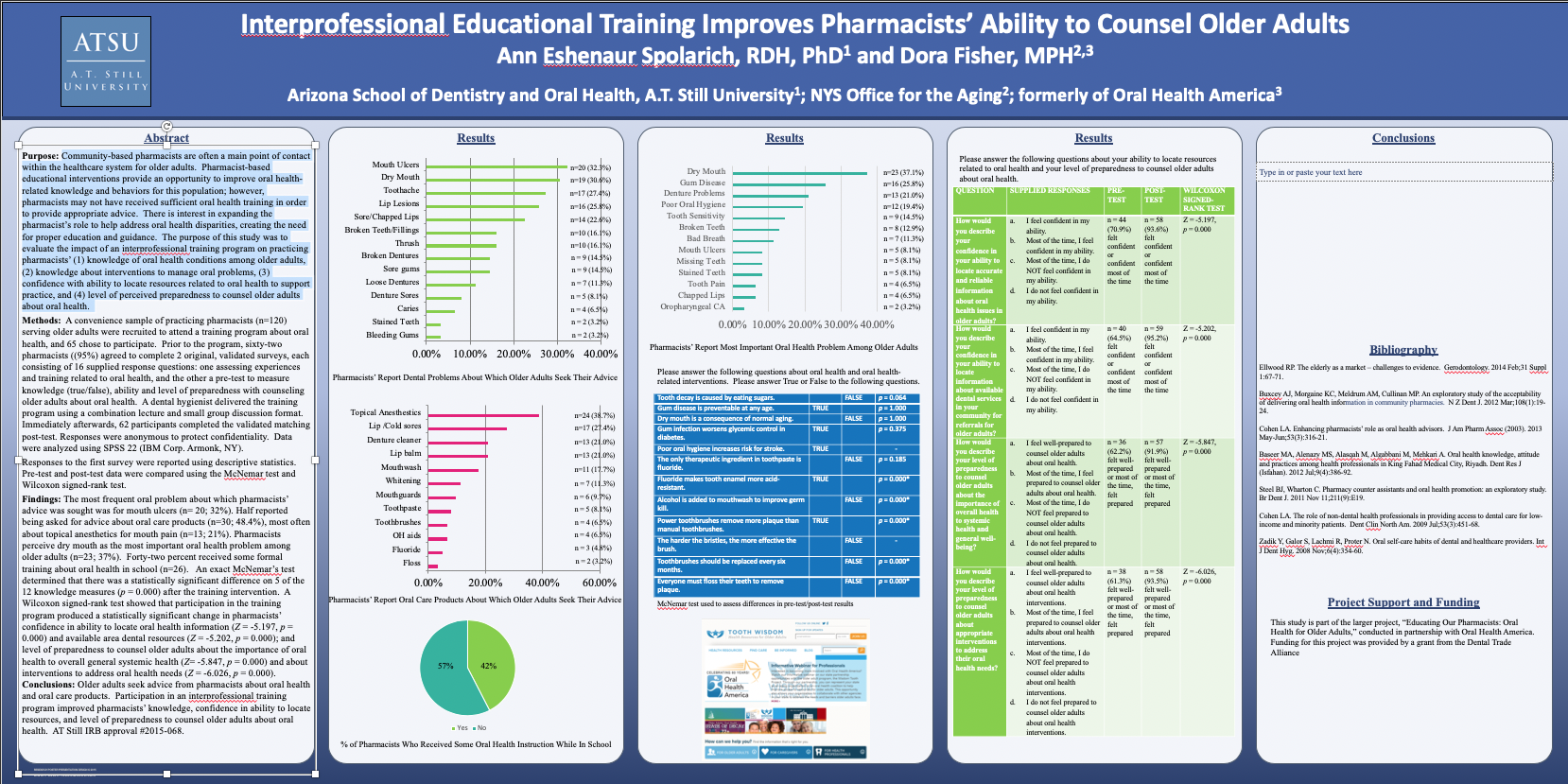Improve Pharmacists’ Ability to Counsel Older Adults
Contributors:
Ann Eshenaur Spolarich, RHD, PhD
Dora Fisher, MPH
Ann Eshenaur Spolarich, RHD, PhD
Dora Fisher, MPH
Participating Organizations:
Arizona School of Dentistry and Oral Health
NYS Office for the Aging
Arizona School of Dentistry and Oral Health
NYS Office for the Aging
Purpose
Community-based pharmacists are often a main point of contact within the healthcare system for older adults. Pharmacist-based educational interventions provide an opportunity to improve oral health-related knowledge and behaviors for this population; however, pharmacists may not have received sufficient oral health training in order to provide appropriate advice. There is interest in expanding the pharmacist’s role to help address oral health disparities, creating the need for proper education and guidance. The purpose of this study was to evaluate the impact of an interprofessional training program on practicing pharmacists’ (1) knowledge of oral health conditions among older adults, (2) knowledge about interventions to manage oral problems, (3) confidence with ability to locate resources related to oral health to support practice, and (4) level of perceived preparedness to counsel older adults about oral health.
Community-based pharmacists are often a main point of contact within the healthcare system for older adults. Pharmacist-based educational interventions provide an opportunity to improve oral health-related knowledge and behaviors for this population; however, pharmacists may not have received sufficient oral health training in order to provide appropriate advice. There is interest in expanding the pharmacist’s role to help address oral health disparities, creating the need for proper education and guidance. The purpose of this study was to evaluate the impact of an interprofessional training program on practicing pharmacists’ (1) knowledge of oral health conditions among older adults, (2) knowledge about interventions to manage oral problems, (3) confidence with ability to locate resources related to oral health to support practice, and (4) level of perceived preparedness to counsel older adults about oral health.
